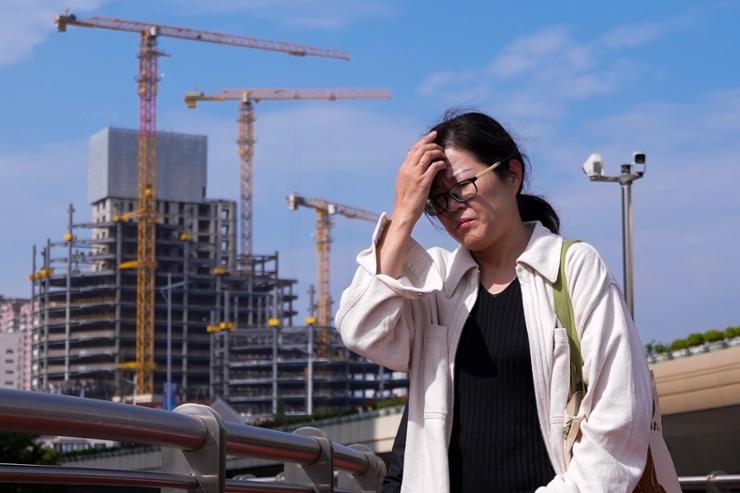
China’s economic growth slows to 4.6% in the third quarter, despite efforts to boost the economy
Due to decreasing growth in export demand and difficulties in the real estate sector, China’s economic growth reached its slowest level since early 2023.
In Q3 2024, China’s economic growth dropped to its slowest pace since early 2023, even though September factory output and consumption numbers were higher than anticipated.
For Beijing, which is rushing to boost growth through economic support, a collapsing real estate market remains a major obstacle.
The second-largest economy in the world increased by 4.6% between July and September, according to official figures released on Friday. This growth was less than the 4.7% growth observed in the previous quarter but somewhat more than the 4.5% predicted by a Reuters poll.
“China’s Q3 2024 data is not a turn-up for the books,” JLL Chief Economist Bruce Pang stated. “Considering the weak domestic demand, the still-fragmented housing market, and the slowing growth of exports, the performance is in line with market expectations.”
Since late September, authorities have increased policy stimulus, but markets are still waiting for additional information about the package’s size and a more defined long-term strategy to stabilize the economy. “It will take time and patience to boost growth over the next several quarters with the stimulus package announced at the end of September,” Pang continued.
Chinese authorities said at a news conference following the statistics on Friday that they were confident the economy could still reach the government’s 5% full-year growth target with more policy support and a planned drop in banks’ reserve requirements.
According to our thorough analysis, the economy is anticipated to maintain the September stabilization and recovery trend in the fourth quarter.
The deputy head of China’s National Bureau of Statistics, Sheng Laiyun, stated, “We have every confidence that we will meet the full-year goal.”
Even while officials spoke in a positive manner, economists were wary of the economic difficulties, especially in the real estate sector.
Despite multiple rounds of policy support, the property sector remained a weak spot with scant signs of recovery, according to September data, which showed that retail sales and industrial output had above forecasts.
Betty Wang, an economist at Oxford Economics, stated, “Given that the structural weakness in the property and household sectors remains largely unaddressed, we would downplay the importance of better-than-expected key economic indicators in September.”
“The recently announced stimulus measures are unlikely to reverse the structural downturn, but they could mitigate the downside risks to growth in the coming year.”
About 70% of Chinese household wealth is linked to real estate, making the property industry a vital economic engine.
Separate statistics released on Friday, however, revealed that new home prices dropped at the quickest rate since May 2015, indicating that the industry is still having difficulties.
In September, China’s production of crude steel also fell for the fourth straight month, falling short of forecasts of a recovery in demand for building supplies.
Given that the real estate industry has always been a significant consumer of steel and other building materials, this is concerning.
On the outside, China’s main export industry is also starting to show signs of weakness. Exports have been one of the economy’s few bright spots, but last month’s steep slowdown in cargo growth suggests that external demand is waning.
The markets reacted favorably to Friday’s report in spite of these difficulties. The People’s Bank of China announced two fresh funding initiatives to assist the equity market, which caused the Shanghai Composite to rise 2.0% and the blue-chip CSI300 Index to rise 2.5 percent.
However, there are also questions about whether the policy changes that have been proposed thus far would be sufficient to solve China’s more serious structural problems.
Toru Nishihama, Chief Economist of the Dai-Ichi Life Research Institute in Tokyo, has warned that China may plunge into full-fledged deflation, citing deflationary pressures.
The GDP figures verified that China is experiencing a shortage of demand and an excess of supply. According to Nishihama, China is on the verge of experiencing complete deflation.
Though economists like Nishihama contend that the government’s response has fallen short, policymakers have promised to refocus their attention from industry and infrastructure investment to boosting consumption.
He remarked, “I’m not sure if those measures are sufficient or not.” “What I can say is that Chinese authorities are falling short; they are failing to take the necessary action while neglecting structural issues.”
All Categories
Recent Posts
Tags
+13162306000
zoneyetu@yahoo.com



